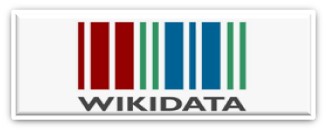“SEJUTA BAMBU UNTUK INDONESIAKU” SOCIO-ECOPREUNEUR UNTUK MENSEJAHTERAKAN PENGRAJIN BAMBU DI DESA HARGOMULYO, GEDANGSARI, GUNUNG KIDUL, YOGYAKARTA DALAM MOMENTUM MASYARAKAT EKONOMI ASEAN( MEA)
DOI:
https://doi.org/10.33884/jpb.v1i01.959Keywords:
AEC, Bamboo, Creative industries, Society, TechnologyAbstract
Indonesia's bamboo potential is currently ranked third after India and China. Bamboo holds enormous opportunities and potential to be utilized in improving the economy. However, the potential of bamboo possessed by this nation has not been utilized optimally, this material is very important because it can be classified into a sustainable germplasm, with a note that the use is not excessive and the extraction is right. What happened in Indonesia, bamboo continued to be cut down without any effort to plant and maintain so that the number of bamboo populations continued to decline. Some areas with good potential for bamboo include Gunungkidul, Special Region of Yogyakarta. Efforts to increase the value of bamboo also need to be balanced with conservation efforts as an increase in bamboo biodiversity itself. The existence of the Asean Economic Community (AEC) at the end of 2015 is a broader economic and market integration. This indicates open competition for trade in goods, services, investment, capital and workers. From these problems, we create a socio-ecopreneur with the theme "a million bamboos for my Indonesia". This product is made from 100% bamboo material, then innovates on bamboo crafts to become a creative, eco-friendly, sustainable, and originally hand made industrial product. This product is suitable for use as house accessories, household utilities, and others. This product uses traditional lamination technology (press) and bamboo preservation. we also developed a bamboo business management model that is beneficial for the economic resilience of local communities, especially for communities in Hargomulyo Village and at the same time beneficial to environmental biodiversity. Using a global interconnection ethnographic approach where we and the community are fully involved in the activity process starting from assessment, planing, implementation (action), until monitoring-evaluation.














